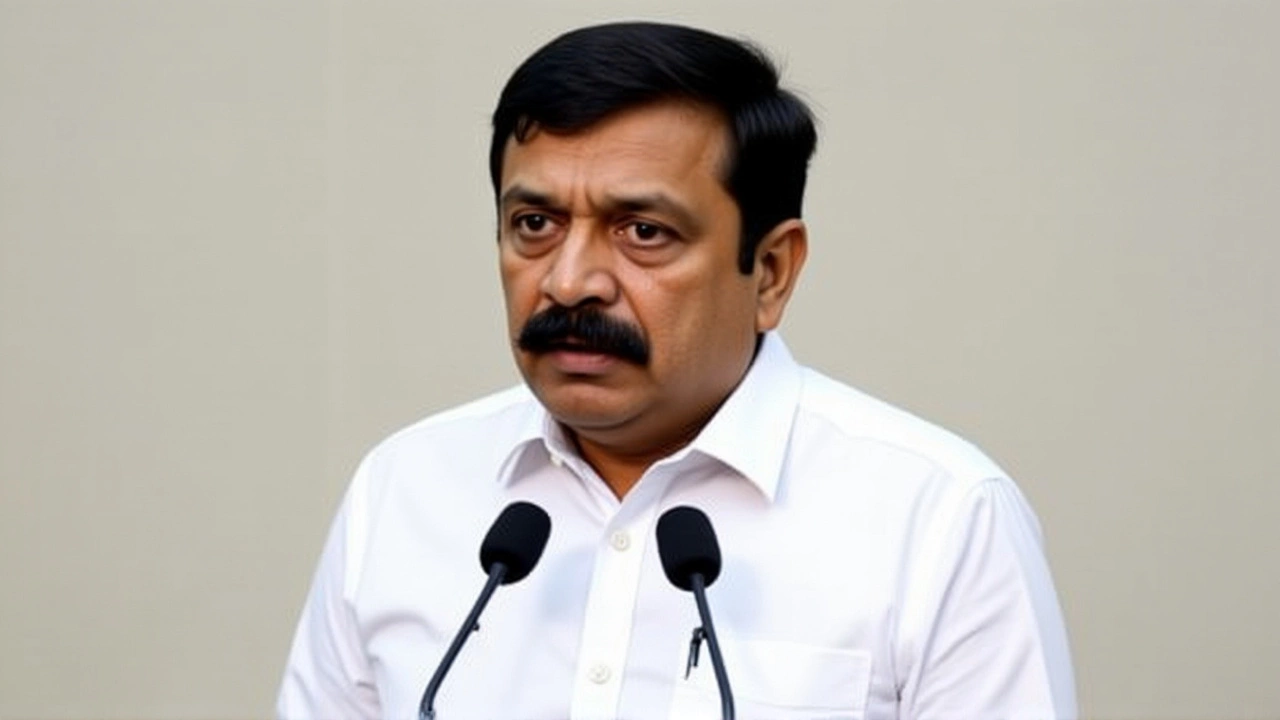
When Donald Trump, former president of the United States, claimed that the Biden administration funneled $21 million through USAID to boost voter turnout in India’s 2024 Lok Sabha elections, the allegation sent shockwaves through New Delhi. Prime Minister Narendra Modi and his party, the Bharatiya Janata Party (BJP), denounced the claim as interference, while opposition leader Rahul Gandhi of the Indian National Congress dismissed it as “nonsensical.” External Affairs Minister S. Jaishankar said the government was examining the matter, adding that “the facts will come out.”
Background of USAID Funding in India
USAID has been operating in India since the early 1990s, primarily funded by congressional appropriations meant for health, education, and democratic governance. According to official data, roughly $2 billion entered India between 2004 and 2013 under the UPA‑led Congress government, whereas only $1.5 million has been recorded since the Modi administration took office in 2014. The sharp contrast has become a political flashpoint, with the BJP framing the earlier inflow as a “soft‑power tool” used by a rival party.
- 2004‑2013: $2 billion USAID assistance (Congress era)
- 2014‑2025: $1.5 million reported USAID projects (Modi era)
- 2022: $21 million earmarked for Bangladesh election‑related civic programs (misattributed by Trump)
- 2012: Vijay Mahajan, chief advisor to Rahul Gandhi, received Rs 78 crore (≈$10 million) from USAID’s Millennium Innovation Fund
The 2012 grant to Mahajan’s Rajiv Gandhi Foundation has resurfaced in the current debate, feeding narratives that the Gandhi family benefits from foreign money.
Trump’s Allegations and Their Reception
On February 22 2025, at a fundraiser in Miami, Trump labeled the alleged $21 million “a kickback scheme,” demanding that India confront the United States. “US$ 21 million for voter turnout in India. Why do we need to spend US$ 21 million for voter turnout in India? Wow… I guess they (the Biden administration) were trying to get somebody else elected,” he said, punctuating the remark with a raised finger.
He also referenced a separate $29 million USAID package for Bangladesh, claiming “Asia is doing well, we don’t need to give them money.” Fact‑checkers at The Indian Express and The Washington Post quickly debunked the claim, noting the $21 million was allocated to Bangladesh in 2022, not India.
Despite the clarification, the story dominated Indian news cycles. On February 21 2025, CNN‑News18 anchor Rahul Shivshankar amplified Trump’s narrative on his "Hard Facts" show, suggesting the accusation had “made the anti‑Modi ecosystem very, very nervous.” He quoted an unnamed “high‑placed source” who claimed that over $3 trillion had flowed into India since 2015 through a web of NGOs, naming Catholic Relief Services ($218 million), CARE International ($208 million), and the Organised Crime and Corruption Reporting Project ($47 million) as major recipients.
BJP and Congress Responses
The BJP seized the moment, framing the episode as evidence of a foreign‑backed campaign to destabilise Modi’s government. Party spokesperson Anurag Thakur warned, “When a former US president starts tossing money‑talk around elections, it is a serious breach of sovereignty.”
Congress, for its part, dismissed Trump’s statements as “nonsensical” and called for a detailed white paper on USAID’s activities in India. In a press briefing, Rahul Gandhi said, “The focus should be on development, not on chasing baseless allegations from abroad.” He also reminded audiences of his 2023 London speech where he warned that “democratic institutions are under attack and the US and Europe are largely silent.”
External Affairs Minister Jaishankar, in a statement to the Rajya Sabha on August 21 2025, clarified that India had not received any USAID funding linked to the alleged election‑interference scheme.
Expert Analysis and Fact‑Checking
Political analyst Rohit Narayan of the Center for Strategic Studies observed, “The controversy is less about actual money and more about narrative control. Both parties are using it to rally their bases ahead of the 2025 state elections.”
Despite the political theatre, the data tells a clear story: USAID’s legitimate programs in India focus on health, skill development, and anti‑human‑trafficking initiatives. A 2024 USAID annual report listed $350 million in grants to Indian NGOs for maternal health and digital literacy, none of which target electioneering.
Independent monitoring groups, such as Transparency International India, have found no evidence of direct voter‑turnout projects funded by USAID. Their 2024 audit report noted, “All USAID‑approved activities comply with the Foreign Aid Transparency Act and are subject to rigorous oversight.”
Implications for India‑US Relations
The episode underscores a growing strain in the bilateral relationship. While trade and security cooperation remain robust, political mistrust is rising. The United States, through the State Department, issued a brief statement on February 23 2025, reiterating its “commitment to democratic processes worldwide” and expressing “regret for any misunderstanding.”
For India, the controversy offers the BJP an opportunity to portray itself as a defender of national sovereignty, a narrative that resonates with a sizable segment of the electorate. For the Congress, the challenge is to counter the perception that it is dependent on foreign funding, a charge it has faced for decades.
Looking ahead, any future USAID projects will likely be scrutinised through a political lens, and both governments may seek clearer communication channels to avoid similar flashpoints.
Frequently Asked Questions
Did USAID actually fund election‑turnout activities in India?
No. Official USAID records show that the $21 million mentioned by Trump was allocated to Bangladesh in 2022 for civic engagement projects. In India, recent USAID grants have focused on health, education, and anti‑trafficking programs, none of which target voter mobilisation.
How does this controversy affect the BJP’s political strategy?
The BJP is using the episode to reinforce a sovereignty narrative, portraying itself as the guardian against foreign interference. This stance is likely to boost nationalist sentiment ahead of upcoming state elections.
What was the response from the United States?
The U.S. State Department clarified on February 23 2025 that its aid programs comply with international norms and expressed regret for any misunderstanding caused by the former president’s statements.
Is there any evidence linking Rahul Gandhi or his foundation to USAID funds?
In 2012, Vijay Mahajan, a close advisor to Rahul Gandhi, received Rs 78 crore (about $10 million) from the USAID‑funded Millennium Innovation Fund. The grant was earmarked for technology‑driven education projects and has no documented connection to political campaigning.
What are analysts predicting for future India‑US aid cooperation?
Experts say both nations will likely tighten oversight and improve transparency to avoid political misinterpretations. While aid flows are expected to continue, they will be framed more explicitly around development goals rather than any political activity.
